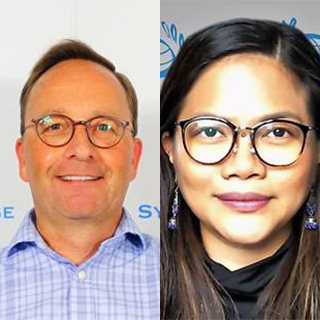Complex learning: the secret to fostering action for sustainable development?
Designing effective learning about sustainable development topics
Much learning designed for adults starts with performance requirements. Instructors ask what tasks and processes the organization requires or why people struggle with the job they are required to perform.
However, focusing on performance in learning about sustainability may not always be effective. A performative focus may lead to learning becoming mechanistic, lacking critical reflection, or restricting learning that leads to innovation.
Sustainability as a subject has strong associations with moral and ethical frameworks, and it is essential to consider what the learners value and what is important in their lives. Learning about sustainable development requires complex learning, which involves integrating knowledge, skills, and attitudes, coordinating qualitatively different constituent skills and usually transferring what was learned in the learning or training settings to work or practice settings.
In complex learning about sustainability topics, learners pay attention to the relationship between knowledge, skills and attitudes and learn them in an integrated manner that supports sustainable practices.
But how can we achieve complex learning and acquire complex skills that are effective and enjoyable for adult learners?
We offer a few examples of what we employ at UNSSC.
Approaches that integrate knowledge, skills and attitudes
- Case studies
Case studies give learners descriptions of actual or hypothetical situations in the real world. Incorporating case studies in learning formats encourages learners to participate actively in the learning experience and answer questions that require deep reflection on problems, approaches, and opportunities.
Learners can experience real-life case studies through site visits or immerse themselves in hypothetical situations through virtual reality or interactive 360-degree videos. In these environments, the learners reflect upon varying knowledge, attitudes, and skills in different situations to make decisions and judgments. The role of the facilitator or learning designer, together with subject matter experts, is to provide the appropriate level of guidance and support to approach complexities, especially in situations where there is no optimal solution.
Going through various case studies can equip learners with complex learning where they can analyze and compare solutions and approaches adopted in different contexts, identify interests, disciplines, and policies that influenced the wide range of actors and stakeholders involved in making decisions, and pay attention to the relationship between the various components in a case.
- Simulation or Modelling
Simulation or modelling illustrates a process or an example of a scenario where the steps to take and explain the rationale for why they are being taken are discussed.
To make simulation fun and interesting, we use a format called Forum Theater, an interactive theater intended to transform lives as spectators become performers, acting out solutions to social problems. An experienced facilitator helps the audience become a performer in addressing societal challenges, encouraging interventions and drawing out themes and realizations. Another approach we use is scenario analysis. In this learning environment, a particular situation's background, contexts and events are provided, which then help drive participants’ discussions around decision-making and its impacts.
When appropriate, another way to increase learners’ motivation at some level of simulation is using gamification, where incentives are given to learners who do the task or behaviour required of them. We have incorporated gamification in our course on sustainable living, where participants take actions based on a scenario and get points depending on how those decisions impact society and the planet.
In simulations or modelling, complex learning is achieved when learners demonstrate associated knowledge (for example, concepts about the circular economy, social protection, climate mitigation and adaptation), skills and attitudes (for example, taking approaches that include marginalized and vulnerable groups or inclusive approach to partnerships or stakeholder engagement, or effective negotiation skills to drive a policy agenda).
- Peer and expert coaching
Adult learners bemoan the lack of time to attend training or go through a course. Many professionals would ‘google’ or search online to find solutions, job aids, and necessary information to help them solve their work problems.
However, a search result to a query such as ‘how to increase trust among your stakeholders in a sustainable development programme’ will not be very useful as it does not always reflect similar contexts that can enable learners to better understand the specific problem, stakeholders’ interests, and the gamut of approaches, including failures, in dealing with the issues.
One effective and enjoyable learning approach is peer and expert coaching. Peers and experts who work in the same contexts and with whom the learners can talk through the matter are effective ways to get ideas, receive feedback, and buddy up to observe the learners’ behavior. Peer and expert groups proved extremely helpful, particularly at the start of the pandemic when UNSSC offered the Mastermind Group to UN Country Team (UNCT) and sustainable development leaders to navigate uncertainty and increase resilience. Leaders appreciate new connections and establish a network of leaders they can trust to discuss similar challenges and bounce back ideas.
Complex learning is integrated and holistic learning
Achieving complex learning and acquiring complex skills can be supported by case studies, simulations or modelling, and peer and expert coaching. These learning approaches allow deep reflections of the relationship between knowledge, skills, and attitudes and coordinating constituent skills that increase learning transfer.
Incorporating these approaches in learning experiences have significant implications in the way we design complex learning, but when done effectively, they can be highly useful in in-person, online, virtual, blended, and hybrid formats in order to increase holistic and integrated learning among leaders and learners of sustainable development.
